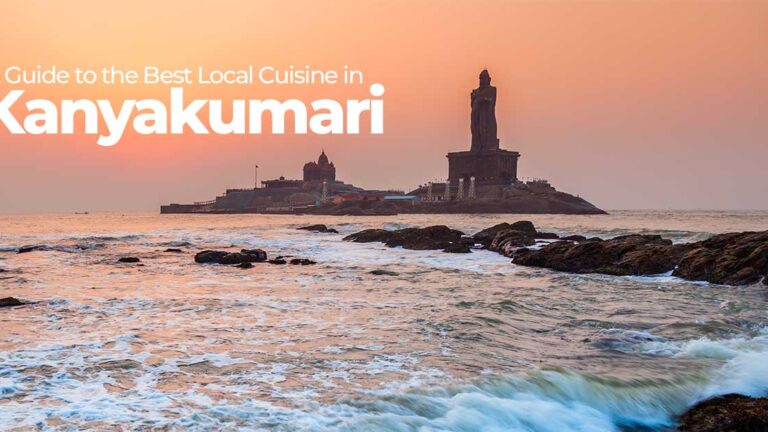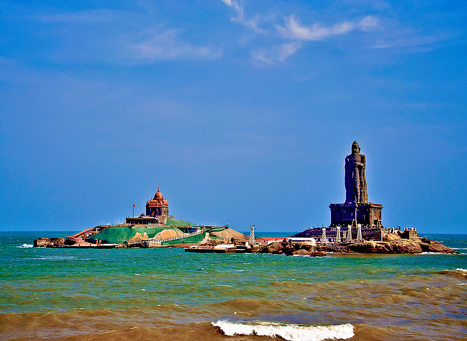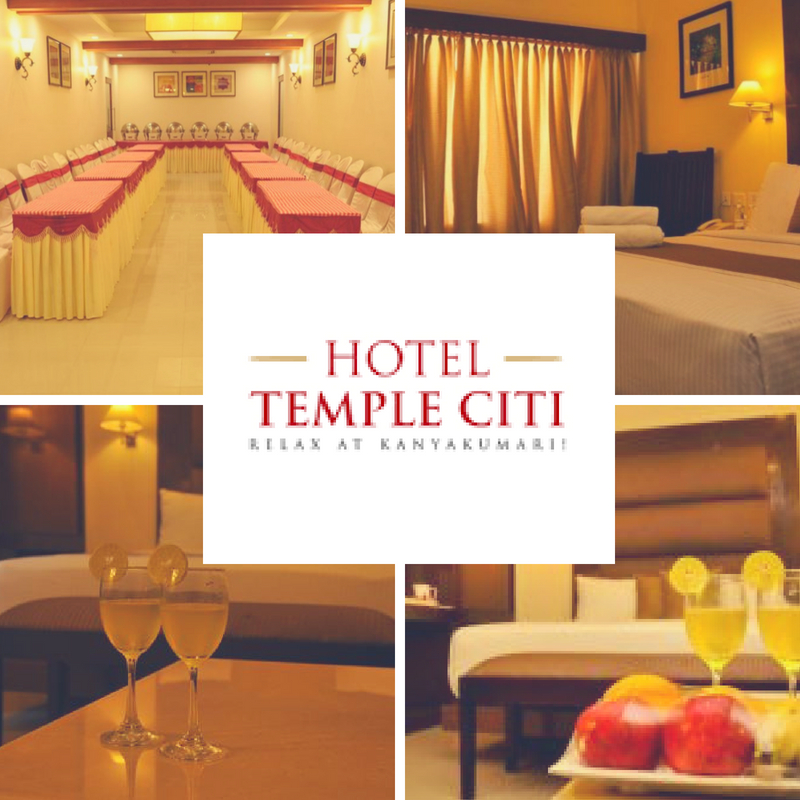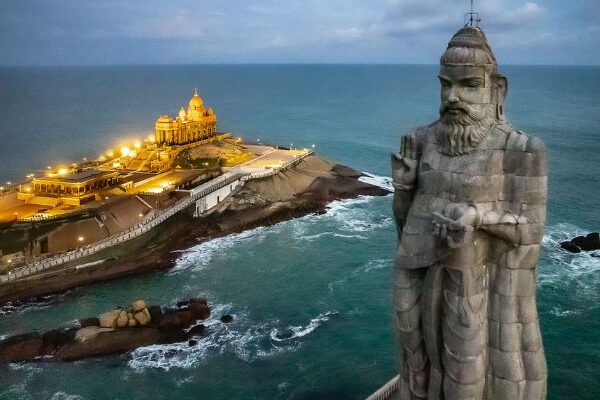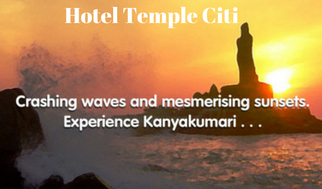Kanyakumari, the southernmost tip of India, is renowned not just for its geographical significance but also for its rich cultural tapestry and culinary delights. As a confluence point of the Arabian Sea, the Bay of Bengal, and the Indian Ocean, Kanyakumari boasts a unique blend of South Indian flavors, influenced by its proximity to Kerala and Tamil Nadu. This guide by Hotel Temple Citi, the best hotel in Kanyakumari, goes deep into the local cuisine of Kanyakumari, highlighting the must-try dishes, popular eateries, and the cultural significance behind the region’s culinary practices.
The Essence of Kanyakumari’s Cuisine
The cuisine of Kanyakumari is a delightful amalgamation of Tamil and Kerala culinary traditions, with a distinctive emphasis on fresh seafood, coconut, and spices. The coastal location ensures an abundant supply of fish, prawns, crabs, and other seafood, which are integral to the local diet. The use of coconut in various forms—grated, milk, and oil—adds a unique flavor to the dishes, setting them apart from other South Indian cuisines.
Key Ingredients and Cooking Techniques
- Coconut: Central to the cuisine, coconut is used in curries, chutneys, and desserts. The creamy texture and mild sweetness of coconut milk enhance the flavors of many dishes.
- Spices: The liberal use of spices such as turmeric, black pepper, cumin, coriander, and mustard seeds gives the food a vibrant color and aromatic richness.
- Seafood: Freshness is key. The catch of the day often dictates the menu, with dishes ranging from spicy fish curries to tangy prawn fry.
- Rice and Lentils: Staples in Kanyakumari, rice is often paired with various lentil-based dishes such as sambar and rasam.
- Banana Leaves: Traditional meals, especially during festivals and special occasions, are served on banana leaves, which not only adds a distinct flavor but also is considered auspicious.
Must-Try Dishes in Kanyakumari
1. Meen Kuzhambu (Fish Curry)
A quintessential Kanyakumari dish, Meen Kuzhambu is a tangy and spicy fish curry made with tamarind, tomatoes, and a blend of spices. The curry’s robustness is balanced by the tender fish, making it a favorite among locals and visitors alike. Typically served with steamed rice, this dish is a testament to the region’s love for seafood.
2. Nandu Varuval (Crab Fry)
For those who relish the taste of crab, Nandu Varuval is a must-try. The crabs are marinated with a mix of spices and shallow-fried to perfection. The result is a crispy exterior with juicy, flavorful meat inside. This dish showcases the Kanyakumari style of seafood preparation—simple yet packed with flavor.
3. Appam with Stew
A popular breakfast dish, Appam is a type of rice pancake with a soft, fluffy center and a crispy edge. It is usually paired with a coconut-based stew made with either vegetables or meat. The mild sweetness of the appam complements the rich, creamy stew, creating a harmonious balance of flavors.
4. Kothu Parotta
Kothu Parotta is a famous street food in Kanyakumari, where parotta (a type of flatbread) is shredded and stir-fried with eggs, vegetables, and meat. The dish is seasoned with a medley of spices and served with raita or curry. The rhythmic sound of the preparation process, where the parotta is chopped on a hot griddle, is almost as iconic as the dish itself.
5. Prawn Moilee
A dish with Kerala influences, Prawn Moilee is a mildly spiced curry made with coconut milk, turmeric, and green chilies. The prawns are cooked to a succulent tenderness, absorbing the creamy, aromatic sauce. This dish is best enjoyed with steamed rice or appam.
6. Pazham Pori
A beloved snack in Kanyakumari, Pazham Pori is ripe plantain fritters. The plantains are sliced, dipped in a batter made of flour and sugar, and deep-fried until golden brown. The result is a crispy, sweet treat that is perfect with a cup of chai.
The Cultural Significance of Food in Kanyakumari
Food in Kanyakumari is not just about sustenance; it is deeply intertwined with the region’s cultural and religious practices. The traditional meals, often served on banana leaves, are an integral part of festivals, weddings, and other celebrations. Each dish, from the simplest chutney to the most elaborate curry, carries a story of the region’s history, geography, and cultural exchanges. Many hotels in Kanyakumari near beach serve you the best traditional dishes that are intertwined with the culture of the coastal line and the city.
Festivals and Food
Festivals in Kanyakumari, such as Pongal, Onam, and Vishu, are celebrated with great fervor and elaborate feasts. During Pongal, a harvest festival, a special dish called ‘Pongal’—a sweet rice and lentil preparation—is made and offered to the deities. Onam, primarily celebrated in Kerala but also in Kanyakumari due to its cultural overlap, features the grand ‘Onam Sadhya’, a vegetarian feast with over 20 different dishes served on a banana leaf.
Temple Prasadam
Temples in Kanyakumari play a significant role in the culinary landscape. The prasadam (food offered to deities and then distributed to devotees) varies from temple to temple but is always made with great care and devotion. At the famous Kumari Amman Temple, the prasadam includes sweet rice, puliyodarai (tamarind rice), and sundal (spiced chickpeas), reflecting the local flavors and religious traditions.
Kanyakumari’s cuisine by hotels at Kanyakumari is a flavorful journey that reflects the region’s rich cultural heritage and natural bounty. Whether it’s the tangy fish curries, crispy snacks, or the simple yet delicious vegetarian fare, each dish tells a story of the land and its people. Exploring the local cuisine is an essential part of experiencing Kanyakumari, offering not just a taste of the region but a deeper connection to its traditions and way of life. So, the next time you visit this beautiful coastal town, let your taste buds lead the way and savor the culinary treasures that Kanyakumari has to offer.
